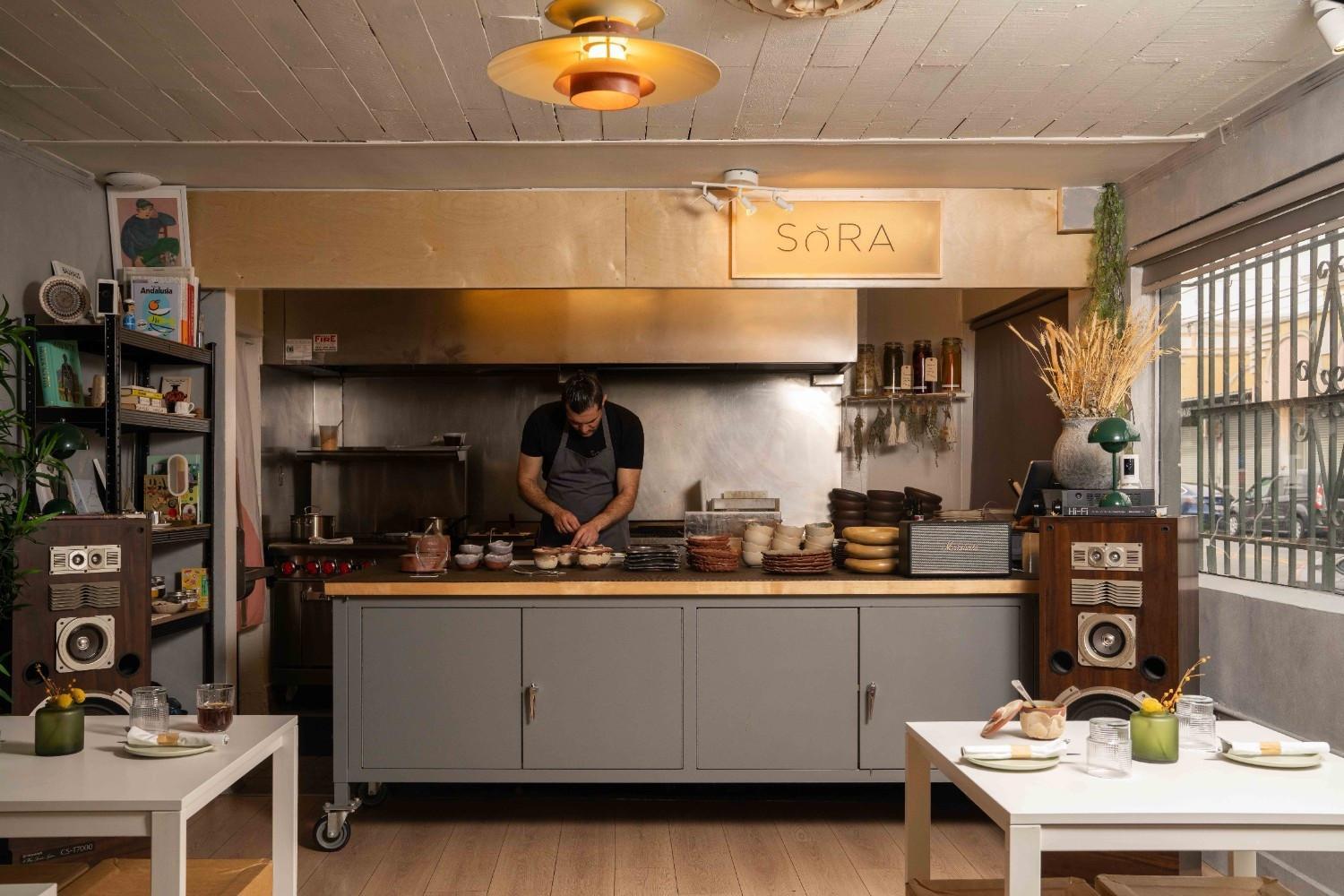
He’s the chef, the server and yes, even the one doing the dishes. Okay İnak has impressively built a loyal following in a remarkably short time at his Los Angeles restaurant, where every detail is handled by him alone. He could have taken the easy route at Sora Craft Kitchen, opting for more generic, crowd-pleasing dishes to appeal to the broader market. But he chose not to.
In a colossal gastronomic arena like the United States, attempting to represent Turkish cuisine amidst the noise of a thousand culinary voices is not merely a professional decision; it is a cultural statement, a bold act of defiance. Because what’s at stake here is not just taste, but also visibility, perception, prejudice and expectation. Turkish cuisine, regrettably, still struggles to find authentic representation on global tables. It is too often reduced to clichés, stripped of its depth and dignity.
This is why plating a delicate içli köfte in a refined, design-forward setting, or reimagining tarhana in a bold pairing, requires not only technical finesse but also immense self-confidence and cultural responsibility.
In a city like Los Angeles, where culinary competition is unforgiving, opening your own restaurant takes far more than just a dream. It demands a spine strong enough to carry that dream through. Okay’s foundation was forged in the kitchens of Eleven Madison Park and Per Se, two of America’s most revered culinary institutions. The relentless discipline he absorbed there is the bedrock of his quiet confidence today.
It is in those early, shadowy years, somewhere between apprenticeship and mastery, that a chef’s character is shaped. These are the years that instill not just technique, but patience, humility and ironclad discipline. Especially when the training ground is a kitchen where seconds matter more than minutes, where surgical precision rules every move. In such places, every shift builds not just a plate, but a philosophy.
Nine years ago, Okay made one of the most pivotal moves of his career when he relocated to New York with his wife, Sezen, a doctor. Despite speaking barely any English, his passion for cooking, his drive and his raw talent earned him a place at Eleven Madison Park, under the legendary Daniel Humm. When the couple later moved to Los Angeles for Sezen’s work, Okay continued his journey at Melisse, one of the city’s top fine-dining restaurants.
When he finally decided to open his own place, all he could afford was a tiny storefront in the backstreets of Downtown LA. He had saved up the money during the pandemic by working as a truck driver.
“At the time, truck drivers were earning the highest wages. I got my commercial license and hit the road. Besides earning money, I got to know America inch by inch and ate in places I never would have discovered otherwise. It was an unforgettable experience,” he recalls.
His restaurant seats just 16 guests. A few months after opening, he was sidelined by an injury caused by a glass water bottle accident that required surgery and kept him homebound for months. But once recovered, he returned to his kitchen full of energy and hasn’t looked back. Over the past nine months, he’s garnered serious attention, including three glowing articles in the Los Angeles Times. Today, it’s nearly impossible to get a table without booking far in advance.
Twice a week, Okay shops at the Santa Monica Farmers Market, considered the best in the country. His restaurant is open five days a week; of the remaining two, he rests one and dedicates the other solely to preparing içli köfte, the dish he learned from his mother, originally from Bitlis. He steams the meat-filled bulgur dumpling, its shell paper-thin, its filling juicy and flavorful, and serves it over his house-made yogurt on a custom ceramic plate designed just for this dish.
Those plates are crafted by Selin Diktaş, a ceramic artist based in Los Angeles, who designs each piece to suit Okay’s dishes precisely. Another standout is his kebab made exclusively with beef, no lamb. It is served with a tangy ezme salad sharpened with yuzu, a bold nod to his East-meets-West sensibility.
What stands out most in Okay’s cuisine is not an exaggerated nostalgia, but a measured sense of belonging. And this matters greatly, especially for diaspora cuisine. A dish might take on a new form, but its spirit must remain intact. That’s exactly what happens in his tarhana prawn dish, where he combines fermented Turkish grain soup with yuzu kosho-infused butter, a remarkable cross-cultural fusion that doesn’t dilute, but rather reinterprets his culinary heritage with elegance.
He hasn’t merely transported his culinary memory from Türkiye to America, he’s transformed it without losing its soul.
Some restaurants don’t leave a mark through lengthy menus, but through deep emotional ties. Their power lies not just in the plate, but in the story, the intent, the quiet resistance they carry. Okay İnak, the one-man powerhouse of Sora Craft Kitchen, is a living example of this. His food is more than a meal; it’s the result of years of perseverance, silent strength and artistic control.
And that’s precisely why I believe we’ll be hearing his name much more in the years to come and feeling deeply proud when we do.